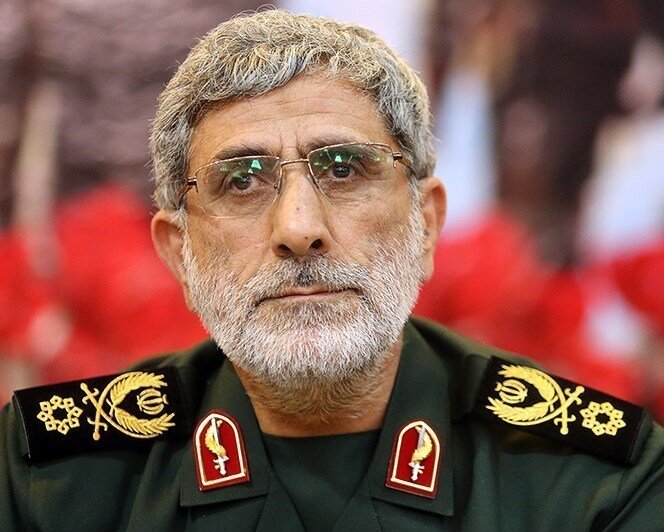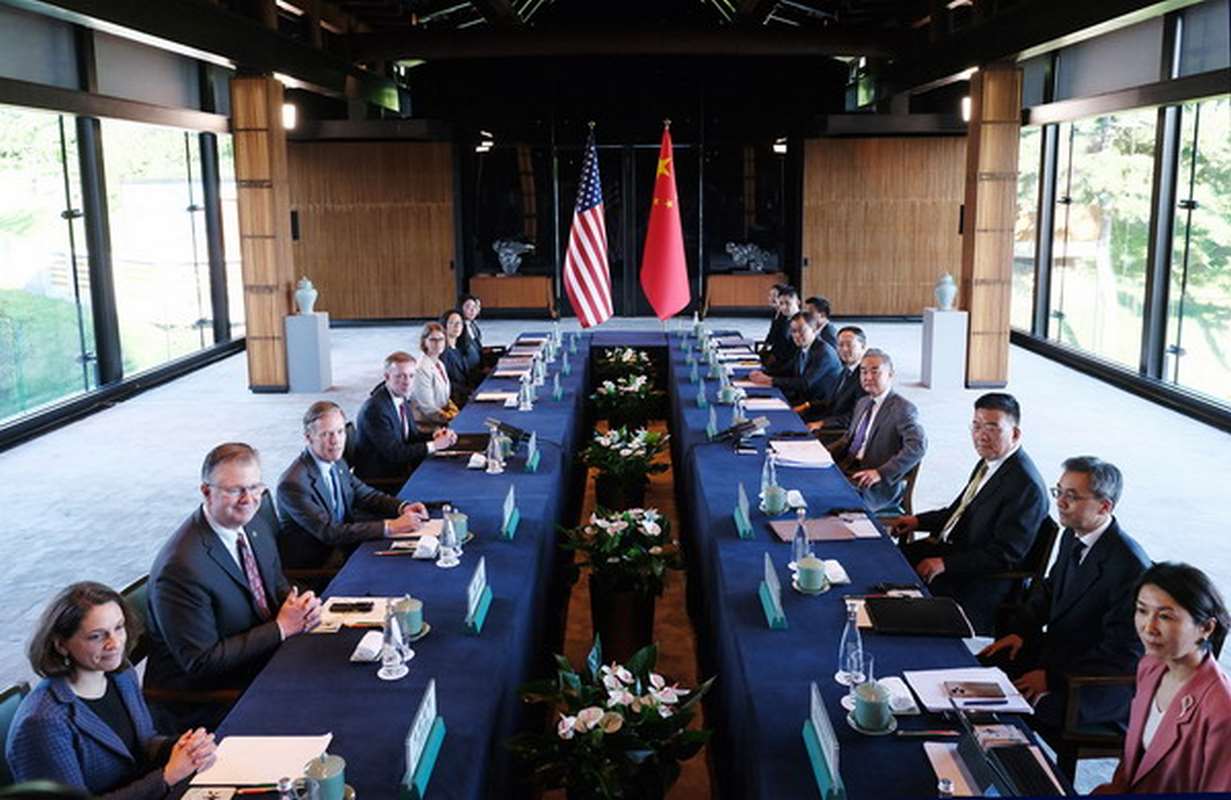PICTURED: Iranian Brigadier General Esmail Qaani. Photo credit Tasnim News Agency. CC 4.0
The new Commander of the Iranian Quds force, Brig. General Esmail Qaani, who swiftly replaced IRGC Maj. General Qassem Soleimani who was assassinated by the U.S. on January 3rd, promised to “continue in his luminous path,” in the face of threats from State Department officials.
“If Qaani follows the same path of killing Americans then he will meet the same fate,” said U.S. Special Representative for Iran Brian Hook in a statement made from Switzerland.
However not only has the White House, the State Department, and the Pentagon all failed to provide sufficient evidence that Soleimani was plotting the deaths of any Americans, but the purpose behind his killing hasn’t been clearly established either, as Rep. Eliot Engel (D – NY) found in a recent hearing of the House Foreign Affairs Committee.
“Each passing day raises new questions about the strike that killed General Soleimani,” Engel said in a statement the day before the hearing. “Was there really an imminent threat? Was it part of a larger operation? What was the legal justification? What is the path forward?”
The hearing, which Sec. of State Mike Pompeo declined to attend, was intended to establish the facts regarding the assassination.
“We heard the strike went forward because Soleimani did so many bad things in the past and was plotting for the future, but when that didn’t work they went back to an imminent threat, but we don’t know where or when it would take place, in fact we don’t even know if it was imminent,” Charmain Engel said in his opening remarks.
“Next an embassy was going to be attacked, then 4 embassies were going to be attacked, then maybe it wasn’t 4 embassies, then it was widely reported that there was a another failed strike on a different Iranian Quds force official in Yemen,” Engel added.
It seems a little too preeminent to be threatening other Iranian generals while so many questions remain about whether or not the killing of Soleimani was anything other than extraordinary in its illegality.
“I consider your testimony to be of extremely high importance and am prepared to use all legal means to ensure your attendance,” Chairman Engel wrote to Pompeo after scheduling a second hearing on the 29th of January.
The enemy of my enemy
Trita Parsi, president of the National Iranian American Council and executive vice president of the Quincy Institute for Responsible Statecraft believes it was, of all things, a surplus of American restraint towards Iran that brought about Soleimani’s assassination.
Parsi, writing for the Quincy Institute, explains that it is perhaps the very fact that America is attempting to maintain regional hegemony in the Persian Gulf that has lead to so many years of instability.
“Assertions about the United States’ pivotal role in the Middle East, no matter how often repeated, have not been proved true,” Parsi begins.
Detailing that nothing remotely resembling regional destabilization occurred after the oil tankers were attacked in the Strait of Hormuz in July of 2019, or after the Houthis attacked the Aramco facilities, or after the Iranians shot down a U.S. drone that was “probably” in Iranian airspace, America’s longtime allies Saudi Arabia and the UAE were forced to exercise the diplomatic option that had “always been available to them”.
These options included reducing anti-Iranian Twitter propaganda, releasing $700 million in Iranian funds frozen in Saudi Arabia, and even reaching out to Iran through the intermediaries of Iraq for a purposed thawing of relations, which Iran warmly accepted.
“The Saudis and Emiratis simply had no choice but to cease some of their recklessness because they could no longer operate under the protection of the United States,” concludes Parsi.
According to Iraqi caretaker PM Adil Abdul-Mahdi, Soleimani was in Iraq carrying a reply to the Saudi/Emirati requests for improved relations, and that was simply unacceptable for the chances of U.S. regional hegemony.



